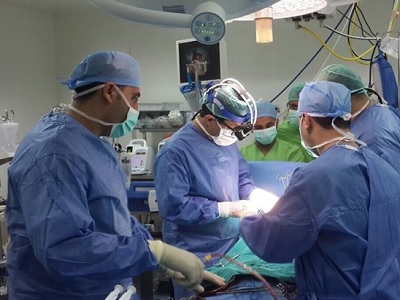
More details have continued to emerge regarding the dire state of the medical sector in the Gaza Strip, as the besieged coastal enclave has been coping with a severe medication shortage on top of an electricity crisis that has forced hospitals to significantly reduce services.
The impact of the medicine shortage on cystic fibrosis patients, infants with developmental deficits, and cancer patients has been documented, and on Sunday, the Gaza-based Palestinian Center for Human Rights (PCHR) reported that blackouts have also had a particularly negative effect on the provision of dialysis treatment.
Electricity cuts in #Gaza put Dialysis Patients at Risk. And will That Change #Netanyahu's Mind? He Wants the Land at Any Cost pic.twitter.com/hKmnyKHkp2
— The Docterr (@docuterror) July 17, 2017
A power cut causes an interruption of the blood cycle rotation during dialysis, PCHR’s report explained, meaning that the blood is kept within the machine, which leads to coagulation and a waste of blood, then to a blood shortage that leads to severe health complications and even death, depending on the patient’s condition.
Muhammad Shatat, the head of the dialysis department at Gaza City’s al-Shifa hospital, told PCHR that during a three-hour blackout, when the generator had run out of gasoline, one patient’s’ blood clotted and required a blood transfer.
“If this would happen on a regular basis, the patient would die after two or three days,” Shatat explained.
Blackouts also “affect the dialysis devices themselves and can damage them or make them entirely useless,” Shatat said.
The hospital currently has 45 dialysis machines and treats 328 patients.
Palestinian patients receive treatment at kidney dialysis departmentatal-Shiifa hospitalin Gaza#GazaAgainstTheWorldpic.twitter.com/LDaOl9rg4T
— ?? Ahmed Bassam ?? (@yazan_04) July 2, 2017
As a result of the decade-long Israeli siege, electronic devices needed to repair dialysis machines are not available in the Gaza Strip and need to be acquiring from international donors, which can take six to 12 months.
The delays have also had a strong psychological and social effect on dialysis patients, PCHR noted, adding that a large number of the patients do not live in Gaza City — the only place they can receive treatment — and many risk their lives traveling to the hospital.
(Maan, PC, Social Media)





